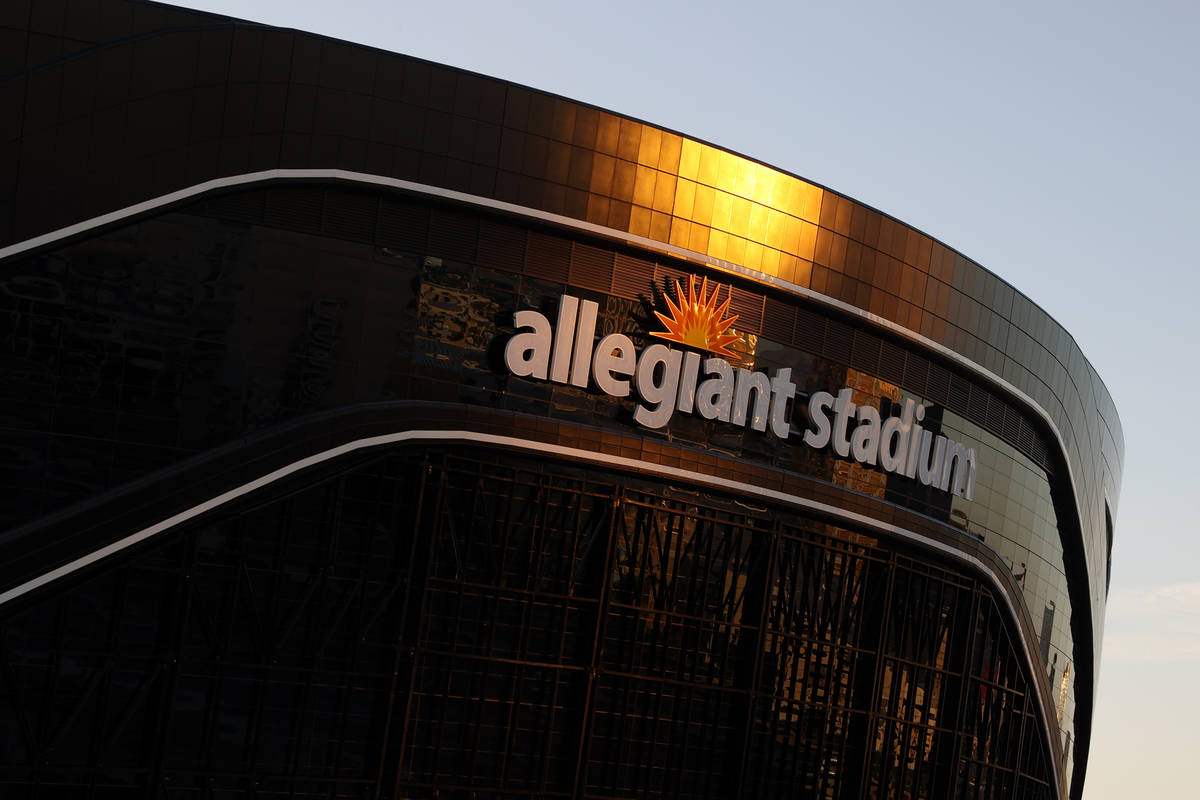Stadium Authority has plan to handle financing shortfalls
The scary room tax revenue scenarios for the financing of Allegiant Stadium’s construction are a little less frightening, thanks to fund sequencing strategies adopted long before construction workers put a shovel in the ground.
The Las Vegas Stadium Authority on Thursday unanimously adopted its 2020-21 fiscal year budget after Chairman Steve Hill and Applied Analysis economist Jeremy Aguero explained how the authority will endure a revenue stream that will be half of what it anticipated in the next 12 months.
The authority board approved a series of fund transfers made necessary by revenue declines that will occur with the nearly 2½-month shutdown of Southern Nevada’s resorts because of the coronavirus outbreak.
Most of the authority’s funds are collected from taxes on hotel room charges. With nearly no revenue coming in during the months of April and May and visitation expected to be off for the foreseeable future, the authority anticipates room tax revenue to be $35.9 million for the current fiscal year, down from what was expected to be $51.9 million.
For fiscal 2020-2021, revenue is expected to be $17.9 million after earlier estimates forecast $53.2 million.
Fortuitous move
Aguero told board members Thursday that a wise decision was adopted when Senate Bill 1, the legislation authorizing $750 million in public financing for the stadium, was approved in a special session. The recommendation was to establish reserve funds to pay for two years of bond payments instead of one. As room tax revenue rolled in, the money was channeled to those reserves.
As a result, the authority has enough cash to make bond payments this year and, if the lower revenue amounts come in as expected, be $19 million short for the next year. That is where the reserve fund comes in, and the authority plans to draw from $67 million saved up to make those payments.
The idea for two years of reserves came from the Southern Nevada Tourism Infrastructure Committee, created in 2015. The biggest advocate for the two-year surplus: Clark County Commissioner Steve Sisolak, who now sits as Nevada governor.
While making bond payments is safe, the funds that are the last to be financed are expected to be affected most. The authority refers to it as “waterfall” financing because once the most important pool is filled with room tax revenue, it cascades into the next most important pool until the bottom fund is filled.
Aguero and Hill said the bottom funds are the debt reserve, which will be short $19 million; UNLV, which had anticipated receiving the first of several $3.5 million payments to compensate for losing revenue from the shutdown of Sam Boyd Stadium; and a $3.8 million capital fund, established to pay for Allegiant Stadium improvement projects as the building ages. The authority figures the UNLV and capital funds to be zero next year.
Suite policy
The Stadium Authority also took its first look at an eight-page suite access policy. The policy, provided to the authority for stadium events except the Super Bowl, spells out conditions of use, including purposes for attending events. Among the listed conditions are for community purposes, including economic development, community support and civic fundraising.
Access will be given to the Las Vegas Convention and Visitors Authority and the Las Vegas Global Economic Alliance for economic development and tourism purposes and to boost support for civic organizations.
The board is expected to take a final vote on the policy at its July meeting.
Contact Richard N. Velotta at rvelotta@reviewjournal.com or 702-477-3893. Follow @RickVelotta on Twitter.


















